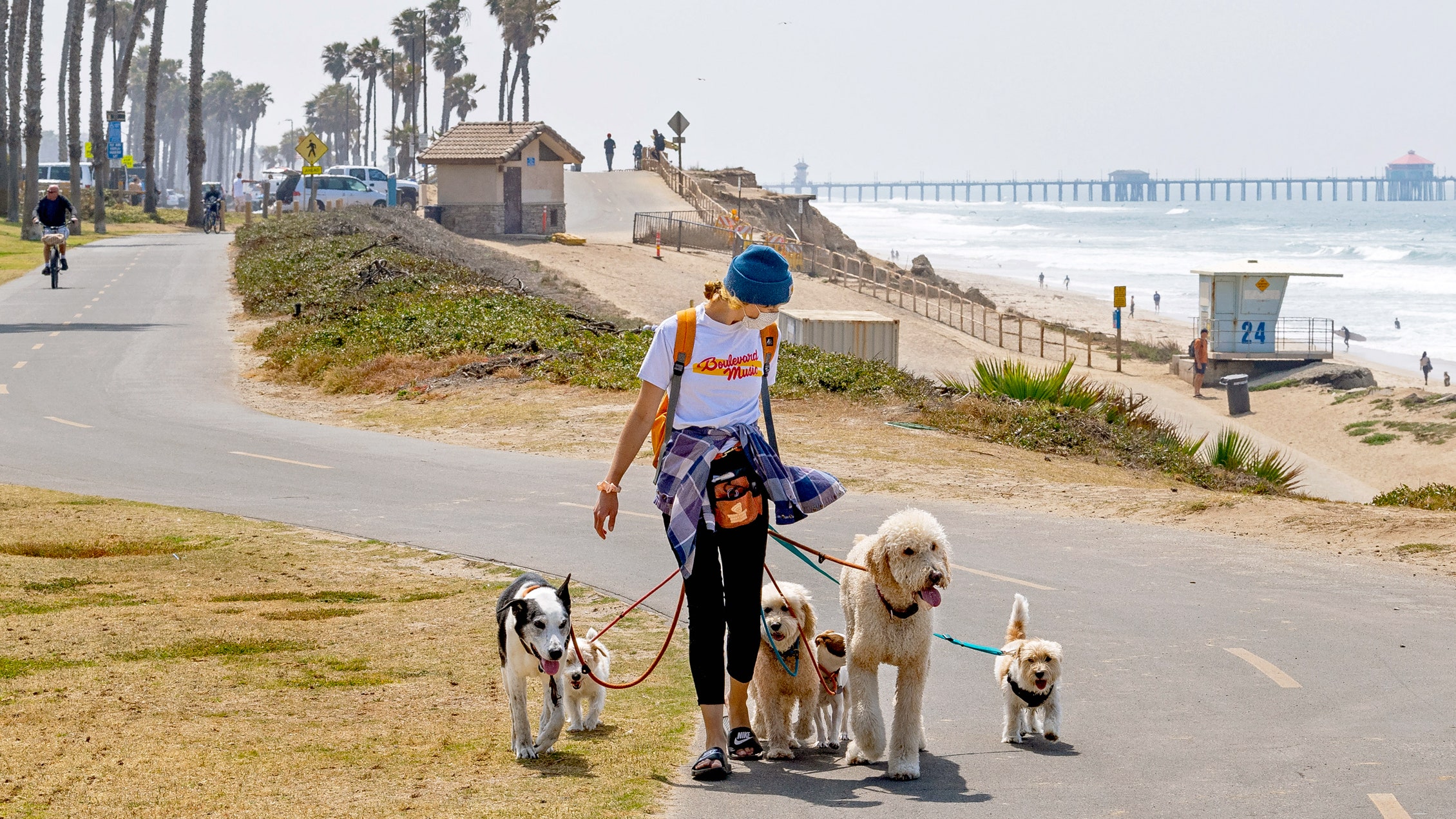Dog walking/washing business – StartupSmart

Dog walking and washing might seem like a pretty basic business venture, but there’s money to be made from canine-loving consumers.
Market research agency IBISWorld predicts a surge in Australians outsourcing their household chores in the future, as people increasingly spend more time at work and less time at home.
IBISWorld says there will be a gap in the market for non-essential services such as doggy daycare, presenting an opportunity for entrepreneurs to start up a pet-inspired business such as dog walking and/or washing.
What is it and who is it suited to?
Starting up a dog walking or washing business is fairly straightforward – people pay you to look after their pet, entrusting them in your care while you’re busy attending to other things.
Both businesses are highly mobile, so the ability to travel to multiple locations is an expectation of most customers. The majority of work is done outdoors, which means work hours are often at the mercy of the weather.
Anyone looking at starting up a dog walking or washing business obviously needs to be a dog lover, but you also need to be good with people as they are your clients – not the animals.
A professional pet business can be a rewarding career for those who are well organised, fairly fit, and can handle the responsibility that comes with looking after people’s pets.
Both dog walking and washing are very flexible businesses to go into. Although a background working with animals is preferable, it’s not essential if you feel comfortable around dogs.
You will also need all the usual entrepreneurial skills, including an ability to balance the books, network and negotiate with prospective clients, and build the business with basic marketing.
Rules and regulations
The Pet Industry Association Australia operates as an industry support group for businesses operating in the commercial pet industry, with membership open to any business regardless of the nature of the operation.
The PIAA states: “Due to over-regulation, it is becoming more important that the operators within the Australian pet industry take greater control of their own destiny.”
“As such, PIAA regularly makes formal submissions on pet industry issues at the request of government agencies and industry regulators. PIAA is represented on many government agency steering, advisory and consultancy committees around Australia.”
PIAA members agree to be bound by a strict Code of Practice in addition to a Code of Ethics, to ensure professional behaviour and high standards are maintained at all times.
You also need to have a good relationship with the local councils in which you work, including a clear understanding and respect of the rules, such as where dogs are required to be on leads.
Research and competition
If you’re not buying an existing business, it’s probably best to start small and allow yourself time to grow. Ask yourself how much time you want to devote to the business – will it be a part-time or full-time career?
It might be worthwhile adding other dog services to your skills set. While these additional services will increase costs and may require office space, they may prove to be the key to a lucrative career.
Extra services include dog sitting, dog training, and providing medical attention whereby time-poor owners pay you to medicate their dogs as required.
It’s also worth learning some basic dog first aid. Ask at your local vet about training in basic dog first aid, which will leave you much better equipped when you start your business.
You also need to stay on top of developments in the industry. PIAA members have access to research information and training on all the latest trends, services and skills available within the pet industry.
Some members progress to accreditation, which is an independent audit and analysis of the member in terms of animal welfare, workplace safety, employee relations and public protection standards.
The association says PIAA accreditation is the highest standard of accreditation for pet industry businesses and organisations in Australia. Accredited businesses are considered peak performers in the pet industry in Australia and are awarded the “gold decal” of quality.
Costs and earnings
Fortunately, dog walking and washing business are considered one of the most cost-effective industries in which to start a business.
Carl and Manuela Maislinger started their Funky Dogz dog grooming business from home, which cut costs considerably.
“The initial set-up costs were about $7,000 and running costs including water and electricity will be a few thousand dollars per year,” Carl Maislinger says.
A basic website and word of advertising provides Funky Dogz with enough cashflow to operate.
Meanwhile, expenses for a dog walking business can include leashes, dog treats and toys. Most professionals pick up the dogs from the clients’ homes, so no business venue is needed.
Dog walkers and washers can expect to earn around $20 an hour.
An average day
A day in the life of a dog walker or washer depends on whether the job is full-time or part-time, but most of the work happens in the mornings, evenings and on weekends, as clients are able to meet with the worker beforehand.
Apart from taking the dogs for walks, a professional dog walker spends their time coordinating their clients’ schedules, meeting with new or prospective clients, and marketing their business.
This is similar to a dog washer’s day, although their schedule could be less rigid if they are a mobile business and simply set up shop somewhere in the hope of attracting customers, such as the beach.
Contacts
Pet Industry Association Australia
02 9659 5811
Australian Chamber of Commerce and Industry
02 6273 2311 (Canberra)
03 9668 9950 (Melbourne)
Australian Government Small Business Support Line
1800 777 275

